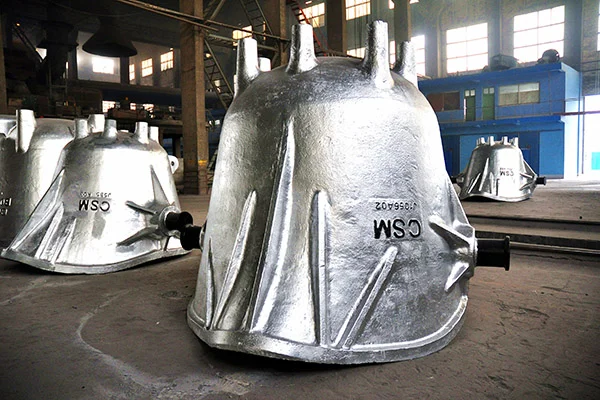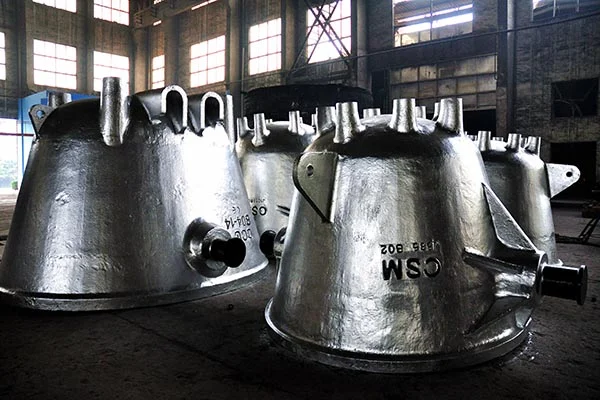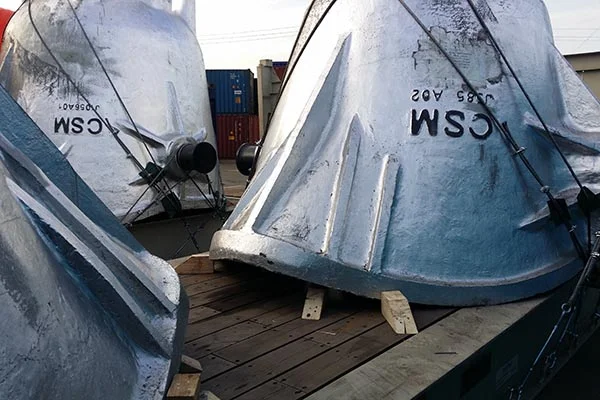- This topic is empty.
-
AuthorPosts
-
16/04/2025 at 18:21 #8318
Steelmaking is a complex process that involves multiple stages of refining, alloying, and casting. One of the most critical steps in modern steel production is ladle casting, a process that significantly influences the quality, composition, and overall properties of the final steel product. This article delves into the importance of ladle casting in steelmaking, exploring its functions, benefits, and advancements in technology that enhance steel production efficiency.
Understanding Ladle Casting in Steelmaking
Ladle casting is an essential part of secondary steelmaking, where molten steel is transferred from the primary steelmaking furnace into a ladle for further processing before being cast into solid shapes. This stage plays a pivotal role in refining the chemical composition, removing impurities, and achieving the desired mechanical properties of steel.
Ladle casting is performed in ladle metallurgy facilities, which include ladle furnaces, vacuum degassers, and continuous casting machines. These facilities allow precise control over temperature, gas content, and alloy composition, ensuring that steel meets specific industry standards.

Functions of Ladle Casting in Steelmaking
1. Refining and Alloying
Once the molten steel is transferred to the ladle, refining processes take place to remove unwanted elements such as sulfur, phosphorus, and oxygen. Deoxidizers and alloying elements like manganese, silicon, and chromium are added to achieve the desired composition. Ladle refining ensures that the steel possesses the necessary strength, ductility, and corrosion resistance required for its intended application.
2. Temperature Control and Homogenization
Maintaining an optimal temperature is crucial for steel quality and castability. Ladle furnaces provide controlled heating to keep the steel in a molten state while ensuring uniform temperature distribution. Homogenization of alloying elements within the ladle prevents segregation and enhances the overall consistency of the steel.
3. Inclusion Removal and Clean Steel Production
Non-metallic inclusions, such as oxides and sulfides, can negatively impact the mechanical properties of steel. Ladle treatment processes, including argon stirring and vacuum degassing, help remove these inclusions. By reducing oxygen and sulfur levels, ladle casting facilitates the production of cleaner steel with superior mechanical and structural integrity.
4. Degassing for Enhanced Quality
Vacuum degassing is a critical step in ladle metallurgy that eliminates dissolved gases such as hydrogen and nitrogen. Excess hydrogen can cause brittleness in steel, while nitrogen affects hardness and toughness. By reducing gas content, vacuum degassing improves steel weldability, ductility, and resistance to cracking.
5. Continuous Casting Preparation
Ladle casting plays a fundamental role in preparing molten steel for continuous casting. Properly treated and refined steel ensures smooth flow and minimizes defects during solidification. The quality of ladle casting directly impacts the formation of billets, slabs, and blooms used in various industrial applications.
Advantages of Ladle Casting in Steel Production
1. Improved Steel Purity
By facilitating impurity removal and inclusion control, ladle casting enhances the purity of steel. This results in high-quality steel products with improved mechanical performance, making them suitable for demanding applications such as automotive, aerospace, and construction.
2. Greater Process Control and Flexibility
Ladle metallurgy provides precise control over steel composition and temperature, allowing manufacturers to tailor steel properties according to customer requirements. This flexibility is crucial for producing specialized steel grades used in high-performance industries.
3. Increased Yield and Efficiency
Advancements in ladle casting technology have led to higher yield rates and reduced material losses. By optimizing refining processes and minimizing defects, steel manufacturers can enhance productivity while reducing production costs.
4. Enhanced Mechanical Properties
Ladle-treated steel exhibits superior mechanical properties, including higher tensile strength, better impact resistance, and improved machinability. These attributes contribute to the durability and reliability of steel components in structural and engineering applications.

Technological Innovations in Ladle Casting
1. Automation and Digitalization
Modern ladle casting facilities incorporate automation and digital monitoring systems to optimize process efficiency. Real-time data collection and predictive analytics enable precise control over temperature, composition, and refining parameters, leading to consistent and high-quality steel production.
2. Ladle Furnace Advancements
New-generation ladle furnaces are equipped with enhanced heating capabilities, advanced slag handling systems, and improved stirring mechanisms. These innovations help maintain steel cleanliness, reduce refractory wear, and extend ladle service life.
3. Environmentally Friendly Practices
With growing emphasis on sustainability, steelmakers are adopting eco-friendly ladle metallurgy techniques. Improved slag management, reduced energy consumption, and the use of recyclable materials contribute to a more sustainable steel production process.

Conclusion
Ladle casting is an indispensable component of modern steelmaking, influencing the quality, consistency, and performance of steel products. By refining molten steel, controlling temperature, and eliminating impurities, ladle casting ensures that steel meets stringent industry standards. With continuous advancements in technology, ladle metallurgy is evolving to enhance efficiency, sustainability, and product excellence. As the demand for high-quality steel continues to grow, the role of ladle casting remains more crucial than ever in shaping the future of steel production.
At China Special Metal Group Limited (CSM), we are committed to delivering world-class welded fabrications and precision machining. Contact us today to discuss how we can support your Ladle casting projects with our cutting-edge expertise and solutions.
E-mail:sales@special-metal.com
http://www.special-metal.com
China Special Metal Group Limited (CSM) -
AuthorPosts
- You must be logged in to reply to this topic.



